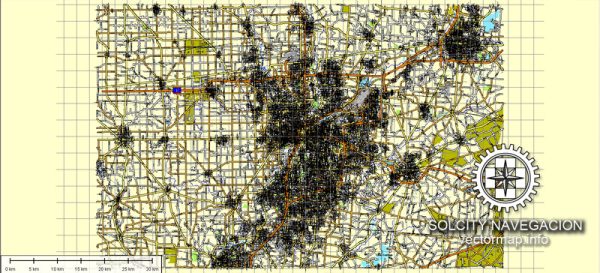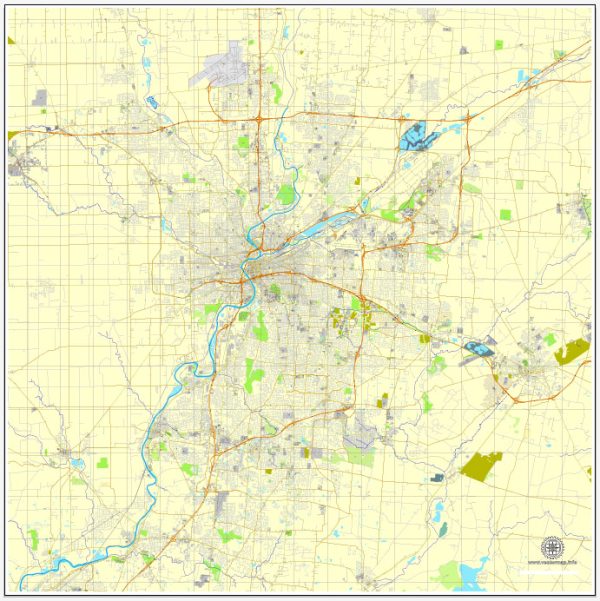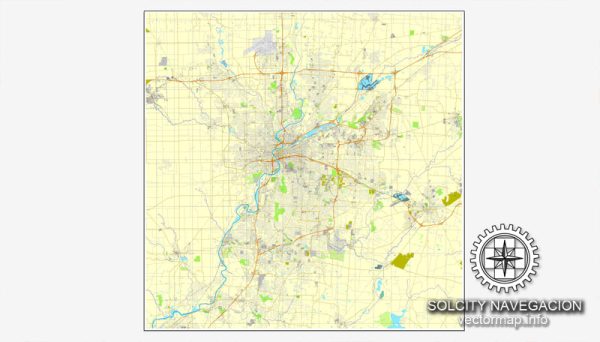Dayton, Ohio, has a rich and diverse history that has played a significant role in the development of the United States. Here is a brief description of the city’s history:
- Founding and Early History: Dayton was founded in 1796 by a group of American Revolutionary War veterans led by General Jonathan Dayton, who was also a signer of the U.S. Constitution. The city was established on the western frontier of the newly formed United States.
- Transportation Hub: Dayton’s strategic location at the confluence of major rivers and close proximity to transportation routes, including the Miami and Erie Canal and later railroads, contributed to its growth as a transportation hub in the 19th century. This facilitated the movement of goods and people, leading to economic development.
- Aviation Pioneers: Dayton holds a special place in the history of aviation. The Wright brothers, Orville and Wilbur, were born in Dayton, and they conducted many of their groundbreaking aviation experiments here. In 1903, they achieved the world’s first powered, controlled, and sustained flight at Kitty Hawk, North Carolina. Their work revolutionized the world of aviation.
- Industrial and Innovation Center: Dayton became an industrial center, with manufacturing and innovation driving its economy. During World War II, the city played a crucial role in the production of aircraft and other military equipment. The National Cash Register (NCR) Corporation, founded in Dayton, became a prominent player in the early computing industry.
- Wright-Patterson Air Force Base: Wright-Patterson Air Force Base, located in the Dayton area, is one of the largest and most important Air Force bases in the United States. It is home to the National Museum of the United States Air Force and has been central to research and development in aerospace technology.
- The Great Flood of 1913: Dayton experienced a devastating flood in 1913 when a combination of heavy rain and snowmelt led to catastrophic flooding. The city’s response to this natural disaster highlighted its resilience and commitment to rebuilding.
- The Civil Rights Movement: Dayton, like many American cities, played a role in the Civil Rights Movement. African American leaders and activists in the city advocated for racial equality, leading to important changes in the community.
- Modern Dayton: Today, Dayton is a vibrant city with a diverse economy, including manufacturing, healthcare, education, and technology sectors. It is also home to several universities, cultural institutions, and a thriving arts scene.
Dayton’s history is intertwined with the broader narrative of the United States, from its early settlement on the western frontier to its contributions to aviation, industry, and technology. The city’s history reflects its resilience, adaptability, and commitment to progress.




 Author: Kirill Shrayber, Ph.D. FRGS
Author: Kirill Shrayber, Ph.D. FRGS